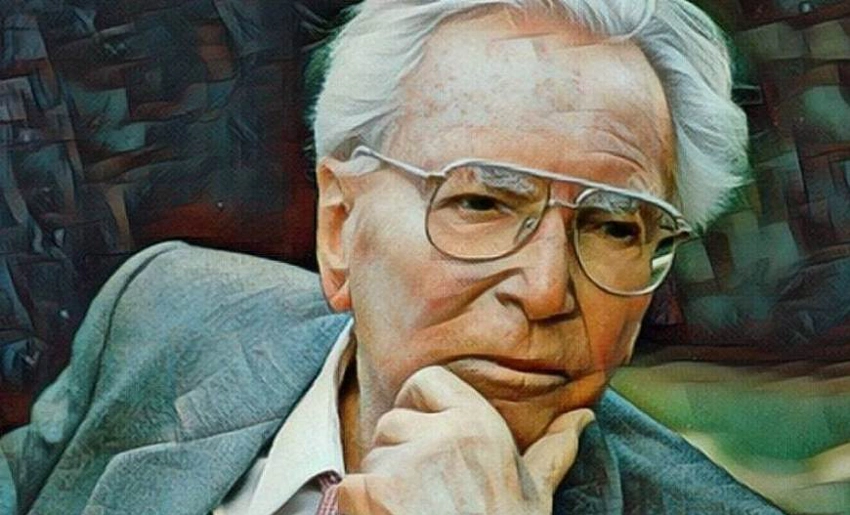Some people may experience, at some point in their lives, or sometimes persistently, overwhelm, apathy, loneliness, lack of motivation, boredom, loss of interest, anhedonia, and depression. They feel their lives are limited to the routines they face daily, which causes them to experience a feeling of emptiness that saps their vitality. They come to believe that living is the worst thing that can happen to them.
Existential emptiness is the feeling of a lack of meaning in life, which leads to isolation and deterioration of relationships with others. Emotional crises triggered by frustration, the inability to achieve individual goals, and routine activities that leave little room for creativity play a role. A lack of affection and enriching social relationships also play a significant role.
Despite technological advances, substantial improvements in the quality of life, and the greater perception of self-control and capacity for development that today’s world apparently offers, with unconventional options and paths that seem to suit each person, existential emptiness has become another of the great evils, not always understood precisely because of these beliefs in the freedom to choose.
Existential emptiness is the emotional experience we feel when we find ourselves disoriented in life, without direction or purpose, with a crisis of values, when we find no meaning in our existence. The underlying idea is that life has no inherent purpose and that we, as humans, must build it. When we lose it, or fail to find it, we connect with this emptiness, which we call existential emptiness.
It is striking that in recent years the incidence of stress in the population has increased, as have the rates of mental disorders and suicide in young adults globally. There are several reasons that explain the worsening disenchantment with life, the most notable being the phenomenon of depersonalization generated by industrial society. The technique has dominated cultural expressions, important symbols of identity and group belonging, while the streets, workplaces, and means of transportation provide an environment in which people live surrounded by people, seemingly accompanied but emotionally lonely.
Emotional neglect and lack of communication are common in family relationships. Even if one or both parents are physically present at home. In many cases they are emotionally absent or spend a lot of time away from home dealing with financial problems.
Furthermore, crime rates around the world are rising, depression is increasing among people of all ages, and various types of addictions are becoming more common, awakening in many a sense of tragedy.
This entire landscape has fostered a distancing of human and emotional relationships, while also generating disbelief in the idea that people can act honestly and authentically. The loss of trust in others due to abandonment, disappointment, betrayal, and acts of violence becomes a loss of identity and self-confidence, which generates a feeling of emptiness. And, of course, this disbelief and loss of trust are also motivated by political systems that distance themselves from the well-being of their people.
While existential emptiness, as a human condition, is the widespread feeling of apathy, boredom, and social alienation, frequently accompanied by depression, hopelessness, loneliness, and other related emotional imbalances. It must be kept in mind that it is also part of the natural process of grief, resulting from the loss of a loved one or some significant change. Furthermore, the specific meaning of emptiness varies greatly in the context of the different cultural traditions in which it is located.
Those experiencing existential emptiness can turn to psychotherapy to understand the origins of their anxiety, express their emotional problems, and learn new strategies for successful relationships.
Logotherapy is a form of psychotherapy founded and developed by Viennese psychiatrist Viktor Frankl. It proposes the will to meaning as the primary motivation of human beings. A psychological dimension unexplored by previous psychotherapeutic paradigms. It postulates that human beings are not motivated by the pursuit of pleasure or power but rather are oriented toward the meaning of life. Which is achieved by embracing creative, experiential, and attitudinal values.

Viktor Emil Frankl (Vienna, March 26th, 1905 – September 2nd, 1997) was an Austrian neurologist, psychiatrist, and philosopher, and founder of logotherapy, one of the forms of existential analysis. He survived four Nazi concentration camps from 1942 to 1945. From that experience, he wrote the book Man’s Search for Meaning, published in 1946, which quickly became a bestseller.
Who can say they haven’t suffered, haven’t felt guilty, and won’t die?
We must all confront this triad for our growth in attitudinal values. The spiritual dimension is the guiding thread of logotherapy because it contains all the resources of the human spirit capable of being used by the individual to counteract illness and the traumas that life brings. According to Frankl, the fundamental spiritual resources are: our will to meaning, our creativity and imagination, our love, our conscience and self-awareness, our sense of humor, our commitments, ideals, and values, and our responsibility and skills in responding.
To close, I share three quotes from Viktor Frankl that can be inspiring and uplifting.
- “Whatever has been taken from you, until your last breath, no one can be deprived of the freedom to face, in one way or another, your destiny. And there is always one way or another.”
- “When we are no longer able to change a situation, we are faced with the challenge of changing ourselves.”
- “The meaning of life differs from person to person, from day to day, from hour to hour. What matters, therefore, is not the meaning of life in general, but the specific meaning of a person’s life at a given moment.”
Translated by Aliani Rojas Fernandez
- A Guide to Improving Our Mental Health - 16 de January de 2026
- How to Make Your New Year’s List - 5 de January de 2026
- Artificial Intelligence: The Challenge of Continuing to Think - 25 de December de 2025

